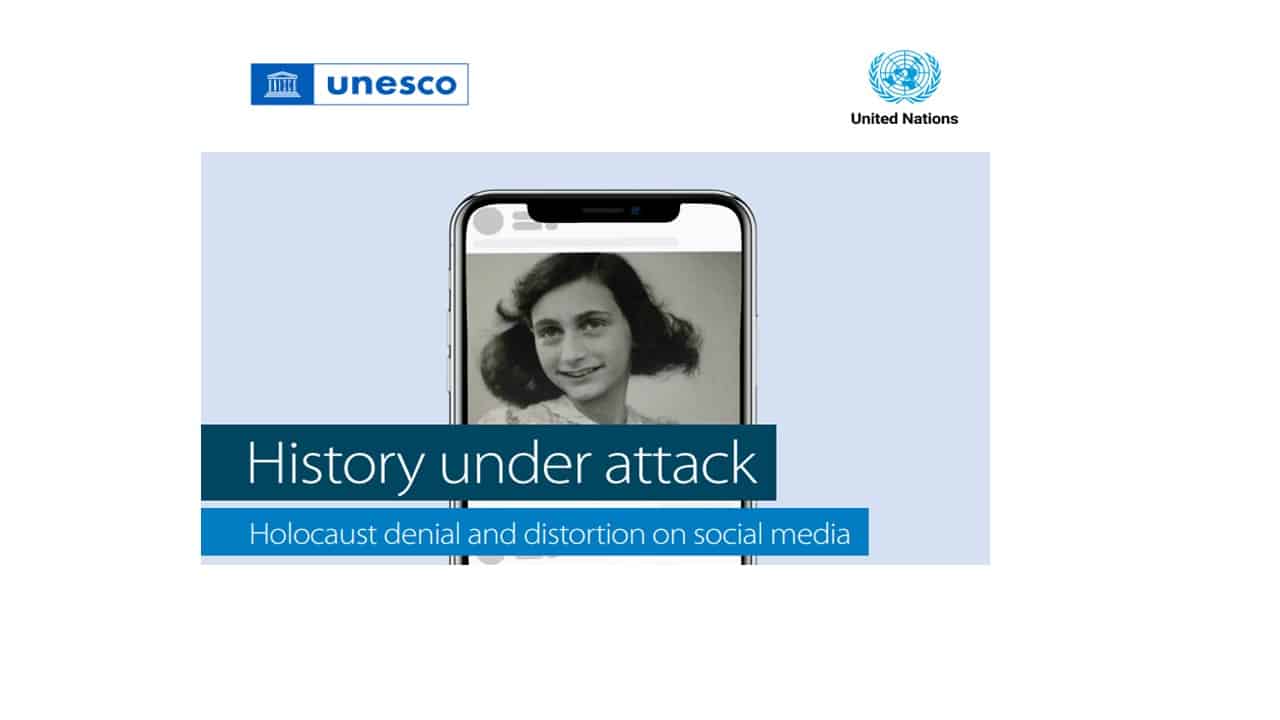UN report: Oxford analysis reveals up to half of Holocaust-related content on Telegram denies or distorts facts
Wednesday 13th Jul 2022, 3.03pm

In partnership with the World Jewish Congress, UNESCO and the UN sought to measure the extent of this phenomena on social networks and commissioned OII researchers to identify and analyse almost 4,000 posts related to the Holocaust, on five major platforms: Facebook, Instagram, Telegram, TikTok and Twitter.
They found Holocaust denial and distortion is widespread on Telegram, a social media platform which is widely used in Eastern Europe. Nearly half of Holocaust-related public content on this platform denies or distorts the facts. The Oxford researchers also found that this rate rises to more than 80% for messages in German, and around 50% in English and French. Furthermore, posts on Telegram, easily accessible to people looking for Holocaust-related information on the platform, are often explicitly anti-Semitic.
[According to Oii research], 19% of Holocaust-related content on Twitter, 17% on TikTok, 8% on Facebook and 3% on Instagram all contained distortions and inaccuracies
Even on moderated platforms, denial and distortion are present, but to a lesser extent, the research reveals. According to the report, 19% of Holocaust-related content on Twitter, 17% on TikTok, 8% on Facebook and 3% on Instagram all contained distortions and inaccuracies.
The researchers also identified that perpetrators have learned to evade content moderation, through use of humorous and parodic memes as a strategy intended to normalise anti-Semitic ideas and make them appear mainstream.
Dr Jonathan Bright, Research Associate, Oxford Internet Institute, says, ‘Our social media analysis, carried out for the UNESCO and UN report, clearly shows the scale of the problem of Holocaust denial and distortion across the five major social media platforms, Facebook, Instagram, Telegram, TikTok and Twitter, with Telegram being the worst offender in allowing misleading and harmful content to spread without any moderation from the platform.
Our social media analysis…clearly shows the scale of the problem of Holocaust denial and distortion across the five major social media platforms…Only by taking collective action we can begin to tackle the fight against online hate
Dr Jonathan Bright
‘There is no place for any form of hate speech, racism, misogyny or xenophobia online and we urge the platforms and governments around the world to adopt the series of recommendations set out in the joint UNESCO and UN report released today. Only by taking collective action we can begin to tackle the fight against online hate.’
The UNESCO and United Nations joint-report puts forward a series of practical recommendations, calling for greater action by social media platforms and governments to counter distortion and denial.
UNESCO Director-General Audrey Azoulay said, ‘The report reveals there are still social networks where Holocaust denial and distortion spread without moderation, and that this content is used to fuel hatred. We can fight against these phenomena by taking action on content and educating users. UNESCO’s partnership with Facebook and TikTok, which redirects users to verified information, is an example of best practice. But we cannot only rely on the voluntary participation of platforms: we also need common principles and guidelines. UNESCO will lead this discussion with all stakeholders, and in 2023, we will hold the first global conference dedicated to the responsibility of platforms.’
Antisemitism, Holocaust denial and distortion, and other forms of religious bigotry and hatred are a seismograph… Today, the cracks are impossible to ignore. This report is an urgent wake-up call that must jolt us into action
United Nations Secretary-General António Guterres
Meanwhile, United Nations Secretary-General António Guterres said, ‘This work is a core part of the mission of the United Nations. And it goes beyond the Holocaust itself. The report shows how intimately linked its denial is to other forms of online violence, including those rooted in racism, misogyny, or xenophobia. Antisemitism, Holocaust denial and distortion, and other forms of religious bigotry and hatred are a seismograph. The more they rattle our world, the greater the cracks to the foundations of our common humanity. Today, the cracks are impossible to ignore. This report is an urgent wake-up call that must jolt us into action – to pursue truth, remembrance, and education, and together build a world of peace, dignity and justice for all.’
Ronald S. Lauder, President of the World Jewish Congress, concluded, ‘Holocaust denial and distortion take many forms online. This report outlines this troubling phenomenon and makes clear that it can no longer be ignored. What is evident, is that when platforms make a concerted effort to address this unique form of hate speech, it leads to results. But more must be done to eliminate it. As Holocaust deniers become more sophisticated, so must all those who are working to fight this evil. The World Jewish Congress looks forward to continuing to support the United Nations and UNESCO in their international efforts on Holocaust education and fighting antisemitism.’

